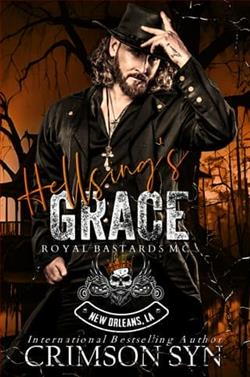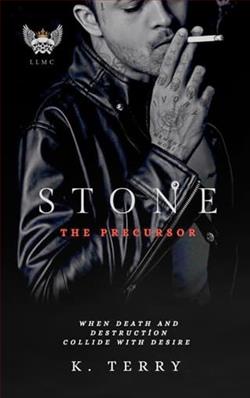Page 102 of The Sun
37
Sunny
It had been two days since I’d left my parent’s house. Two days of Mother calling me and me assuring her I was fine. As upset as I was with Daddy, I wasn’t upset with her. I knew Daddy was at work, which was the only reason I went by to grab a few more clothes and talk to Momma.
Elias parked his truck in the drive beside my Honda. I’d left the car on purpose. I didn’t buy it. My name wasn’t on the title. It was theirs for all intents and purposes.
“Want me to come in with you?” he asked.
“No. I won’t be long.”
It was a weird sensation to knock on that door instead of just walking in, but I felt it was the right thing to do, or maybe I did it to make a point. The wooden door opened and before I could step inside, Momma threw her arms around me.
“Oh honey,” she whispered beside my ear.
I rested my head on her shoulder, fighting the emotions moving through me like a riptide. “I’m sorry if I hurt you.”
She squeezed me harder before she took a step back. Deep bags sat below her eyes. She looked tired, and I felt guilty. It was my fault, and it was Daddy’s fault that she had been put through the ringer.
“I don’t want you to do this. . .” She paused, and I prepared myself for an argument. “I wasn’t ready to let you go yet, Sunny. I was supposed to have a few more months of being your momma.”
There went that tug in my chest that had become all too familiar. “You’ll always be my momma.”
“It isn’t the same once you leave.” She cupped my cheek, and I leaned into her touch, remembering how she used to comfort me when I came in crying from a skinned knee. I felt she was trying her hardest to mend the heart my father had broken.
Momma sat on the bottom step of the foyer, then patted the place beside her. Over the years, we’d sat in this exact spot a total of eight times—every time we’d seen a foster child off. It was the place where we tried to figure out how to fill the hole, the place we decided, after Drew, that we wouldn’t take in any more foster children.
I guessed that was exactly what we were doing that day, too. Filling holes that could never really be filled.
“Believe it or not,” she said. “I do remember being your age, and it’s not easy. But then again, no stage of life is easy.”
I stared at the picture by the door, the family portrait from when I was four. I breathed in the familiar aroma of freshly baked bread and wood polish that had seeped into the floorboards over the years, and it hurt. Because regardless of whether Daddy had approved of Elias from the start, this chapter of my life—the one where I lived with my parents—was over. And when I really thought about that, it hurt more than I expected.
“Do you think Daddy will ever give him a chance?”
“When he calms down. He’s hurt Sunny. To him, you’ve chosen Elias over us.”
“It’s not that. It’s just. . .” I tried to find the words while Momma brushed my hair away from my face.
“At some point, you grow up,” she said. “It’s not choosing. It’s simply living your own life. That’s all. Parents raise their children, knowing they’ll one day let them go, but this wasn’t how we had it pictured.” She pressed a kiss to my forehead. “I promise, as hard as this is on you. It’s just as hard on him.”
“I don’t want him to hate Elias.” I chewed at my lip, imagining what the rest of our lives would be like with that stress. “Because he’s not going anywhere.”
“I believe that.”
We sat on the step for a long time in silence. I was thinking about Daddy, and I was sure Momma was thinking about me.
Finally, I pushed to my feet and started up the stairs to my room.
“You know you can come home?” Her voice sounded strained, and I stopped on the first landing. “I won’t stop you from seeing him, Sunny.”
There was a small part of me that wanted to come back. I loved my parents. I loved Simon, but I was deeply, irresistibly, absolutelyin lovewith Elias. I was desperate for every second with him. “I. . .”
“Sunny? How do you know you love him?”
There were so many ways I could answer that, but no combination of explanations could define what I felt. I could say that from the way my chest ached when I wasn’t with him, every love story seemed dull and petty. Or I could try something cliché like he was the last thing on my mind when I fell asleep and the first thing I thought of when I woke. But those arguments seemed cheap and powerless. So instead I said:
“I know I love him because there are no words I could use to possibly describe it.”















